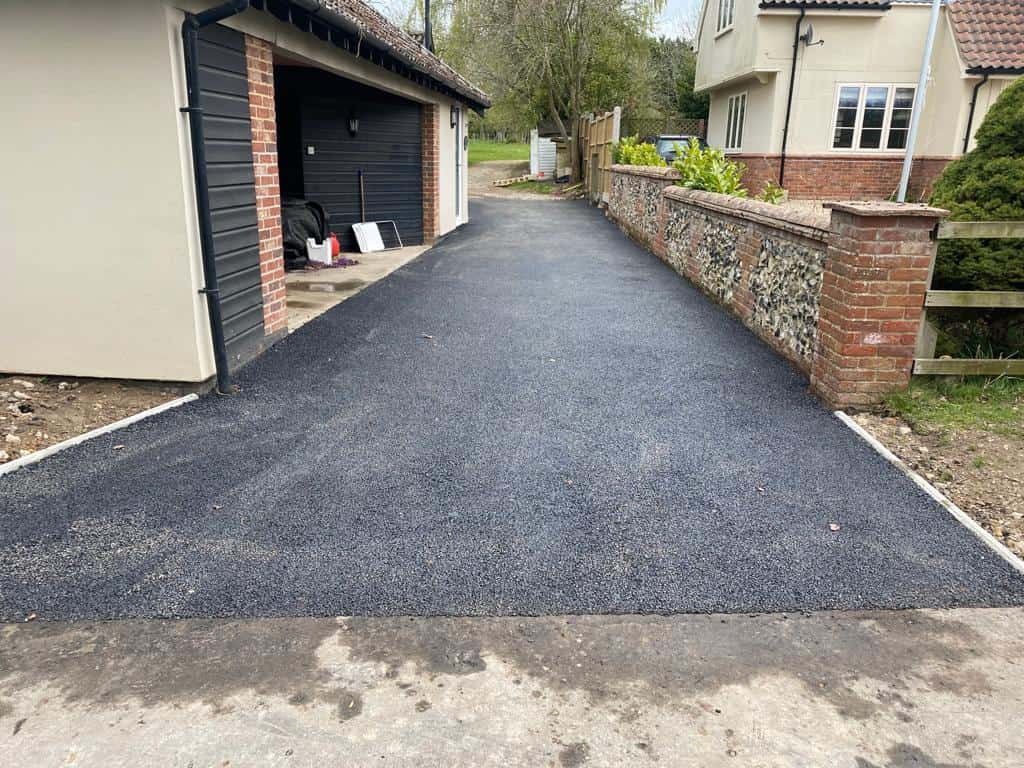From Farm Roads to Urban Driveways: The Versatility of Tarmac
Tarmac, or tarmacadam, is one of the most versatile and reliable materials for surfacing roads, driveways, and paths. Its strength, durability, and adaptability have made it a popular choice for a variety of applications, from agricultural roads to residential driveways. For residents and businesses in Hook, Hampshire, tarmac offers an ideal solution for creating long-lasting and visually appealing surfaces that perform well in all weather conditions.
This article explores the many uses of tarmac, its benefits, and why it remains a trusted material for both rural and urban settings.
Why Tarmac is a Versatile Surfacing Solution
Tarmac is a composite material made from crushed stones mixed with bitumen, a binding agent that holds the aggregate together. This combination results in a robust, smooth, and weather-resistant surface suitable for a wide range of applications.
1. Durable in All Environments
Whether it’s a rural farm road enduring the weight of heavy agricultural machinery or an urban driveway facing regular vehicle traffic, tarmac is built to last. Its durability ensures it can withstand constant use, harsh weather, and the wear and tear of everyday life.
2. Cost-Effective
Compared to other surfacing materials like concrete or block paving, tarmac is an affordable option without compromising on quality. Its longevity and low maintenance needs make it a cost-effective choice for both rural and urban projects.
3. Quick Installation
Tarmac can be laid and set quickly, minimising disruption. This is especially beneficial for farms and businesses that need access restored promptly or for homeowners who want their driveway ready for use as soon as possible.
4. Weather Resistant
The British climate demands a surface that can handle everything from heavy rain to freezing temperatures. Tarmac’s weather-resistant properties make it suitable for use in areas prone to flooding, frost, or high heat.
Applications of Tarmac in Rural and Urban Settings
Rural Applications
Farm Roads
Farm roads are essential for providing access to fields, barns, and storage areas. Tarmac offers a smooth and sturdy surface that supports heavy machinery and prevents muddy conditions during wet weather.
Livestock Pathways
A well-surfaced tarmac road is ideal for transporting livestock safely. Its non-slip properties reduce the risk of injuries for both animals and vehicles.
Yard Surfaces
Tarmac is commonly used for surfacing farmyards due to its strength and resistance to cracking under heavy loads. It provides a clean, professional finish that is easy to maintain.
Urban Applications
Residential Driveways
Tarmac is a popular choice for urban driveways, offering a sleek and modern appearance. Its smooth surface provides excellent traction for vehicles while enhancing the kerb appeal of a property.
Commercial Parking Areas
Businesses often rely on tarmac for car parks due to its durability and ability to withstand high traffic volumes. Its smooth finish makes it easy to mark out parking bays and pedestrian pathways.
Pathways and Access Routes
Tarmac is a practical choice for pathways and access routes in urban environments, ensuring safe and even surfaces for pedestrians and cyclists.
Benefits of Tarmac for Both Settings
1. Low Maintenance
Tarmac requires minimal upkeep to remain in excellent condition. Occasional cleaning and minor repairs are usually sufficient to keep the surface looking and performing its best.
2. Customisable
Tarmac surfaces can be tailored to suit the specific needs of a project. For example, coloured tarmac can be used to create visually appealing driveways, while permeable tarmac options help with drainage in areas prone to flooding.
3. Smooth and Safe Surface
The even finish of tarmac reduces the risk of accidents caused by uneven ground. Its non-slip properties make it a safe option for both vehicles and pedestrians.
4. Sustainability
Modern tarmac production often incorporates recycled materials, making it an environmentally friendly option. Additionally, its long lifespan reduces the need for frequent resurfacing, minimising waste.
Professional Installation is Key
To fully benefit from the versatility and durability of tarmac, professional installation is essential. Experienced contractors ensure that the surface is laid correctly, with proper ground preparation and drainage to maximise its longevity.
The Process of Tarmac Installation
- Site Assessment: Evaluating the area and its requirements to determine the best approach.
- Ground Preparation: Clearing and levelling the ground to create a stable base.
- Tarmac Application: Laying and compacting the tarmac for a smooth and even finish.
- Finishing Touches: Adding edging, drainage solutions, or line markings as needed.
Conclusion
Tarmac’s versatility makes it a reliable choice for a wide range of applications, from rural farm roads to urban driveways. Its durability, affordability, and weather resistance ensure that it performs exceptionally well in both settings, making it a long-term investment for property owners.
If you’re considering tarmac for your driveway or another project in Hook, Hampshire, NS Driveways Hook offers professional installation and expert advice to help you achieve a durable and visually appealing surface. Contact us today to learn more about how tarmac can meet your needs.
Call us on: 01256 577 998
Click here to find out more about NS Driveways Hook
Click here to complete our contact form and see how we can help with your driveways needs.

